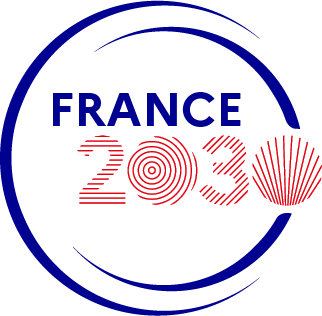-
PARAFRAP
- Qui sommes-nous
- Objectifs du Labex
- Laboratoires de recherches
- Coordinateurs
- Collaborateurs industriels
- Tutelles et soutiens
- GOUVERNANCE
- Organisation
- Comité de pilotage
- Comité exécutif
- Conseil scientifique international
- Comité Institutionnel
- FORMATION
- CONFERENCES
- THÉMATIQUES
- Exploitation des données post génomiques
- Mécanisme de la pathogénie
- Biologie Cellulaire et Moléculaire
- Nouvelles stratégies d'interventions thérapeutiques
- Plateformes
- VALORISATION
-
PARAFRAP
- Qui sommes-nous
- Objectifs du Labex
- Laboratoires de recherches
- Coordinateurs
- Collaborateurs industriels
- Tutelles et soutiens
- GOUVERNANCE
- Organisation
- Comité de pilotage
- Comité exécutif
- Conseil scientifique international
- Comité Institutionnel
- FORMATION

Fabrice LAURENT
Information

Infectiology and Public Health UMR1282 INRA-Tours Univ 
Apicomplexa and Mucosal immunity (AIM laboratory) 
Tours/Nouzilly 
0000-0002-9687-7952 
Cette adresse e-mail est protégée contre les robots spammeurs. Vous devez activer le JavaScript pour la visualiser. 
https://www6.val-de-loire.inrae.fr/infectiologie-santepublique_... 
@FabriceLaurent0 Scientific interests and projects
General scientific interests: Apicomplexa and Mucosal Immunity (AIM) team is working on two apicomplexan parasites with intestinal tropism, Cryptosporidium and Eimeria. Historically our research on cryptosporidiosis mainly concerned investigations on the protective and pathological immune responses. However, we extend our researches and recently start to characterize the molecular mechanisms that govern Cryptosporidium/intestinal epithelial cell interactions and the long term consequences of the infection on intestinal homeostasis and immune disorders. In man and farm animals, cryptosporidiosis is poorly controlled and we wish to combine two complementary strategies for an efficient control of the disease. Based on strong dependence of functional immune responses for controlling Cryptosporidium we wish to develop immunostimulatory strategies dedicated to neonates in order to strengthen their ability to limit parasite growth. Drug therapies are limited both in human and livestock, we therefore aim to develop new potent molecules to control parasite development.
Scientific activities to be developed in the framework of Parafrap:
I-Virulence factors: Thanks to transgenesis now available in the laboratory we wish to identify cryptosporidium virulence factors that co-opt specific host-epithelial cell signaling pathways upon invasion and development.II- Gut physiopathology: Infection of young individuals by C. parvum induces a long-term defect on intestinal gut physiology and this has been linked to the occurrence of Irritable Bowel Syndrome (IBS). We plan to investigate the contribution of Paneth cells (PC) and their antimicrobial peptides on the onset of this intestinal disorder.
III- Control strategies: In collaboration with several international teams including Ali Hakimi’s team from Parafrap with whom we recently identified a first promising target (CPSF3) we wish to further develop our therapeutic arsenal against Cryptosporidium, from drug screening to molecular target identification and in vivo final validation (rodent and large animal models).
Top 5 publications of the last 5 years
1. C. Swale, A. Bougdour, A. Gnahoui-David, J. Tottey, S. Georgeault, F. Laurent, A. Palencia and Mohamed-Ali Hakimi, Metal-captured inhibition of pre-mRNA processing activity by CPSF3 controls Cryptosporidium infection Science Translational Medicine, 11(517): eaax7161. doi: 10.1126/scitranslmed.aax7161
2. Potiron L, Lacroix-Lamandé S, Marquis M, Levern Y, Fort G, Franceschini I, Laurent F. Batf3-Dependent Intestinal Dendritic Cells Play a Critical Role in the Control of Cryptosporidium parvum Infection. J Infect Dis. 2019 Feb 23;219(6):925-935. doi: 10.1093/infdis/jiy528
3. Diallo MA, Sausset A, Gnahoui-David A, Silva ARE, Brionne A, Le Vern Y, Bussière FI, Tottey J, Lacroix-Lamandé S, Laurent F, Silvestre A. Eimeria tenella ROP kinase EtROP1 induces G0/G1 cell cycle arrest and inhibits host cell apoptosis. Cellular Microbiology. 2019 Jul;21(7):e13027. doi: 10.1111/cmi.13027.
4. Riba A, Olier M, Lacroix-Lamandé S, Lencina C, Bacquié V, Harkat C, Gillet M, Baron M, Sommer C, Mallet V, Salvador-Cartier C, Laurent F, Théodorou V, Ménard S. Microbiota dysbiosis induced by defect of Paneth cells triggers visceral hypersensitivity in mice. Gastroenterology. 2017 Dec;153(6):1594-1606.e2. doi: 10.1111/cmi.12632.
5. de Sablet T, Potiron L, Marquis M, Bussière FI, Lacroix-Lamandé S, Laurent F. Cryptosporidium parvum increases intestinal permeability through interaction with epithelial cells and IL-1β and TNFα released by inflammatory monocytes. Cell Microbiol. 2016 Dec;18(12):1871-1880. 10.1111/cmi.12632.
mardi 20 janvier 2026Call for Applications: New Junior Research Groups at Institut Pasteur
Call for Applications: New Junior Research Groups at Institut Pasteur The Institut Pasteur has launched an international call to recruit new junior group leaders.This is a unique opportunity for high-potential scientists to...
lundi 12 janvier 2026Ingénieur·e d’étude / Research Engineer – Mosquito Immunity (IBMC, Strasbourg)
JOB : Ingénieur·e d’étude / Research Engineer – Mosquito Immunity (IBMC, Strasbourg) 🇫🇷 Le laboratoire Mosquito Immune Responses recrute un·e ingénieur·e d’étude à l’IBMC (Strasbourg). La personne recrutée sera en...
mardi 6 janvier 2026Applications Open for the Biology of Parasitism Course 2026
Applications are now open for the 2026 Biology of Parasitism (BoP) course, taking place June 12–July 23, 2026 at the Marine Biological Laboratory in Woods Hole, MA.This intensive 6-week program offers PhD students and postdocs advanced training in...
jeudi 27 novembre 2025Research Assistant/Associate Position | Molecular Parasitology | Newcastle University
Newcastle University offers a full-time, fixed-term position (3 years) for a Research Assistant or Research Associate in Molecular Parasitology — funded by the Medical Research Council (MRC). About the Opportunity Location:...
jeudi 13 novembre 2025PhD Opportunity | African Trypanosomes | University of York
Multidisciplinary PhD opportunity in the fields of infectious diseases, gene regulations and molecular signalisation. Fully Funded 4-Year PhD at the University of York A fully funded PhD opportunity is available at the...
mardi 14 octobre 2025Recap of the EMBO Workshop 2025
The EMBO Workshop 2025 “Host–Parasite Relationship: From Mechanisms to Control Strategies”, took place from October 5–8, 2025, on the beautiful Île des Embiez (France). Organized within the framework of the LabEx ParaFrap and...
jeudi 31 juillet 2025PostDoc l Toxoplasma l Montpellier, FR
Postdoc (M/F) in molecular and biochemical parasitology (Toxoplasma gondii) A 24-month post-doctoral position starting on January 2026 and funded by the French National Research Agency (ANR) is available in the in the...
lundi 9 juin 2025PostDoc l Trypanosoma l Bordeaux, FR
Postdoc (M/F) Molecular and cell biology in Trypanosoma brucei A 24-month post-doctoral position starting on November 1st 2025 (or before) and funded by the French National Research Agency (ANR) is available in the...
mercredi 4 juin 2025PostDoc l Plasmodium l Montpellier, FR
Postdoc (M/F) in molecular biology in P. falciparum Workplace: MONTPELLIER Contract Period: 24 months Expected date of employment: 1 October 2025 Proportion of work: Full Time Remuneration: Starting from...
vendredi 25 avril 2025EMBO Workshop Host Parasite 2025 - Registration
Registration is now open for the EMBO Workshop "Host-Parasite Relationship: From Mechanisms to Control Strategies," supported by...
Bluesky feed
PROGRAMME DE FORMATION FR
Programme Doctoral InternationalProgramme Post-doctoralACTUALITÉS
© 2023. Tous droits réservés by MLCOM
Notre site LabEx ParaFrap utilise des cookies pour réaliser des statistiques de visites, partager des contenus sur les réseaux sociaux et améliorer votre expérience. En refusant les cookies, certains services seront amenés à ne pas fonctionner correctement. Nous conservons votre choix pendant 30 jours. Vous pouvez changer d'avis en cliquant sur le bouton 'Cookies' en bas à gauche de chaque page de notre site. En savoir plus
Paramétrages de cookies
×Cookies fonctionnels
Ce site utilise des cookies pour assurer son bon fonctionnement et ne peuvent pas être désactivés de nos systèmes. Nous ne les utilisons pas à des fins publicitaires. Si ces cookies sont bloqués, certaines parties du site ne pourront pas fonctionner.
Mesure d'audience
Ce site utilise des cookies de mesure et d’analyse d’audience, tels que Google Analytics et Google Ads, afin d’évaluer et d’améliorer notre site internet.
- Google Analytics
- Google Ads
Contenus interactifs
Ce site utilise des composants tiers, tels que NotAllowedScript6976683c1068aReCAPTCHA, Google NotAllowedScript6976683c10356Maps, MailChimp ou Calameo, qui peuvent déposer des cookies sur votre machine. Si vous décider de bloquer un composant, le contenu ne s’affichera pas
- Google Maps
Pour en savoir plus, cliquez sur le lien.
Voir le site officiel - Calameo
Pour en savoir plus, cliquez sur le lien.
Voir le site officiel - reCaptcha V2
Pour en savoir plus, cliquez sur le lien.
Voir le site officiel - reCaptcha V3
Pour en savoir plus, cliquez sur le lien.
Voir le site officiel
Réseaux sociaux/Vidéos
Des plug-ins de réseaux sociaux et de vidéos, qui exploitent des cookies, sont présents sur ce site web. Ils permettent d’améliorer la convivialité et la promotion du site grâce à différentes interactions sociales.
- Twitter
Pour en savoir plus, cliquez sur le lien.
Voir le site officiel
Session
Veuillez vous connecter pour voir vos activités!Autres cookies
Ce site web utilise un certain nombre de cookies pour gérer, par exemple, les sessions utilisateurs.




